Gilda Peterborough has always worried about her twin, but when Pete deletes his Facebook page, she goes to red alert. Meanwhile, Pete and Gilda’s mother Beth frets about both of her twins, neither of whom seem to be thriving. When Pete abruptly decides to move away from Edmonton to Montreal, Gilda decides to track him down. Beth tries to help by befriending Pete’s former co-worker.
Pete (a.k.a. Philippa, a.k.a. Phil) is intersex, a biological fact Gilda believes is the root of all Pete’s social problems. As far as Pete is concerned, however, the problems all lie with his twin, who is always on his case. Both Beth and Gilda hope to find Pete and somehow reconcile the family’s unresolved past, which is haunted by the influence of Ralph Peterborough, a father who has never accepted his children for who they are.
In Montreal, Pete meets Philip McDonald, owner of the bed and breakfast where he and Beth lived when they were on the lam more than twenty years ago. Through Philip, Pete meets members of the LGBTQIA+ community and expands his quest for liberation in ways he never expected.
“What happens when you throw the dynamics of game theory, project management methodology, and Ellison’s Invisible Man together on a page? Add nine players: an intersex person, a conventional dad, a crafty-cool mom, an uptight sister, a straight friend, a trans-lover, a middle-aged gay couple, and a gay co-worker. Mix in the surprising affinities of two Canadian cities, Edmonton and Montreal, where this game plays out. Deuce is what happens. On the surface, this is a novel about an intersex person: Phillipa/Phil/Pete, someone’s daughter/son/child, twin sister/brother/sibling, friend/lover. And the exploration of that paradox is breathtaking: What does it mean to live between worlds? How does one escape oneself to find oneself? How does one hold all these identities together and not fall short of everyone’s expectations? Funny, audacious and real. Deuce is a masterful debut by a writer with a powerful voice.”
—Audrey J. Whitson, author of The Death of Annie the Water Witcher by Lightning
“In prose as deceptively straightforward as her characters, Vivian Zenari has created a tale revealed in layers, peeled away one after another, surprising the reader with the poetry and turbulent complexity beneath the surface. With compassion and true insight, she tells of a family navigating secrets, lies and identity, travelling through time as fluid as gender. Deuce reminds us that we can invent our own game with our own rules. And the win, when it finally happens, is so much more satisfying than we anticipated.”
—Darrin Hagen, author of The Edmonton Queen
powered by Crowdcast
3. Coalescence
The next morning Gilda woke, showered and descended to the streets. Cars, bicycles, taxis and people whirred past on Saint Catherine Street. The humidity made her body itch with sweat, but she forced her attention to remain pinned to yesterday’s events.
Philip was right that Pete was a cultural object as much as a person. The redhead without the freckles who had shared a bedroom with Gilda until they were twelve, who had shared a womb with her, who had shared the same set of potential genetic material, was not just a brother/sister, but an archetype for the gender divisiveness that society had struggled with for centuries. The struggle manifested in him, and all that their family had gone through was related to it. A horn honked. She veered off to a side street to escape some of the city noise.
She rested on a bench at the end of a hot dusty street named after a vaguely familiar Quebec politician. In sitting, she was doing something of cultural significance. The stone building across the street with its gaudy red and yellow sign Chez Costa; that too was of cultural significance. The vaguely familiar Quebec politician might seem more significant than Pete, insofar as that man’s portrait likely hung in a marbled, high-ceilinged government building somewhere, but notwithstanding their relative triviality, from the moment that she and Pete had coalesced around their respective stem cells in the straw-coloured fluid of their uterine sacs, they had been swimming in a cultural ether. Part of that ether flowed through these streets, even though much of it flowed from a different subculture than Edmonton’s, this province of French-surnamed politicians and French-language shopfronts. Being in Montreal, she was participating in the same cultural framework that Pete now circulated through.
The heat of the bench seeped up her rear into her hips and torso, her arms and fingers, shoulders and neck, until the warmth exuded from the crown of her skull. She wiped a drop of sweat from her forehead. The heat here. Above her head, the invisible fluid of social discourse streamed. It gushed up out of body but also cascaded down on her from above, those invisible signs and symbols of the discourse of provincial politics, personal politics, social politics. The through-thoughts of centuries arced around her bench on the politician’s street and above the towers of this island in the St. Laurence River, careening atoms, an electron storm, currents of words that propagated the beliefs and knowledge that had blazoned Beth in her own mother’s womb, originating from the past of the world’s systems of beliefs. Alongside the verbal were the biological discourses, the concatenation of genes, the materiel of physical heritage that gushed through her and Pete and all their living relatives and would flow into future ones. In the middle of this stream of consciousness and physiology sat herself, Gilda.
A grey car edged past her in traffic. A man in a brown coat chauffeured a younger man in a tank-top, both unsmiling in their front seats. The car and its occupants were mingling with her, the stream of atoms that made up the smell of gasoline from the exhaust, the dust that flew off the tires. The fact that the men were not smiling reminded her of all in life that was worth not smiling about. She looked down at her feet, at the thick toes trying to spring from the black-strapped sandals. Her thick, itchy toes reminded her of her loneliness, of her mother’s loneliness, the dullness of the nurse book, the triviality of Ian Auma’s book project and the smallness of her life.
Yet her life was not small, not if she thought about Pete/Philippa as an expression of the cultural mystique of the man-woman, the not-sexed one and thus the all-sexed one. Gilda was a female child, the unloved child of history, who, to be loved, had to fight like a soldier and unwoman herself to do it. Since she and Pete sprang nearly simultaneously from the same loins, both physical and cultural, didn’t that mean that if he was part of a mystique, she was too?
Far beyond her bench on a busier cross-street, a troika of women strode with smiles, happy toreadors entering the ring and self-assured about their victories. Women singly moved from street corner to street corner in flat Roman sandals, in wedged heels, jogging shoes and flip-flops, going about their business in the dust pillars and slanting light of late morning, unescorted.
Chez Costa’s plate glass window revealed a woman standing behind a cashier counter, selling, and another woman in front of her, buying. The clerk at her hotel was a woman, the servers at the hotel restaurant were women. Her mother, a woman, worked and paid for her own home and expenses. Her immediate boss was a woman. Yet Manuka’s boss was a man, likely the person who ran the hotel and owned it was a man; the mayor of this city, the mayor of her home city, the head of the university she attended, were men. God was a man, said the church her mother went to daily, and his child was a man. Not a man-woman, a sexless one, but someone who in paintings of his gruesome public death had to wear a loin cloth, but, unlike his sainted mother, could be bare-breasted, like the two bronzed and shirtless men who were walking past Gilda.
She rose from the bench and walked. Scant minutes later, she arrived at a small park that sprang up from between two highrises. A metal metro-station sign styled in art deco fronted the park. Lime-coloured grass and grey benches surrounded a square white fountain with a low rushing spray at its centre. She wanted to sit alone but had to make do with a bench on which sat a young man who studied his cellphone. She usually felt tempted by her cellphone’s promise of raw information to feed her, but she had enough energy inside without it.
Montreal was her home town. It was the epicentre, the dot in the map that connoted “start here.” When she was young, her mother had left her with her father and taken Philippa here, the realm of her sibling’s namesake, while Gilda remained in the city into which she had burst from the womb via a nurse’s blue-sheathed arms, after which she’d been put aside in a plastic crib to wait for her twin to be born. Abided. For most of her life, she had considered herself the leader of the two in the sense that she did everything first—crawled—spoke—walked. When high school ended and they were out in the world, even though Pete got a first job first and moved out first, Gilda had believed that Philippa had been first in the sense of premature, not primary or precocious, but of too early, too raw. Gilda captured the laurels because she planned earlier, acted quicker, gathered her energies way in advance of the push forward into adulthood. By staying with her mother in her childhood home rather than moving out, Gilda had demonstrated her maturity, her awareness of the necessity to look after an aging parent long before Pete had a clue that anyone needed looking after, including himself.
In truth, Pete had early on commandeered the centrepiece of the table of their shared life. He left his birthplace when he was merely months old. Most people waited until they graduated high school to do that. He showed an early awareness of the significance of this city to him and with that awareness, conscious or not, had acknowledged the reality of Montreal’s nurturing germ. Beth had not taken Philippa to Montreal: Philippa had taken Beth to Montreal. No—he and Gilda had been in Montreal when they were fetuses. Had Philippa taken them there? Yes, why not say that? He has been here three times, Gilda only two. For this visit, she had planned so hard. She doubted Pete put in the same effort. Maybe it paid to be screwed up: you leapt and started, not waited and brooded. Pete, unaware of the hard work it took to be first, was way ahead of her.
She recommenced her journey through the city, past the fountain and down a rue that darkened suddenly in the shadows of a stand of skyscrapers. A tunnel of air swept a piece of paper into her path and made her dance to one side, just as a white plastic bag tumbled in a gust of dry wind at cross purposes to the paper and made her dance to the other side of the sidewalk. No one else walked in this shadowed block. It was colder here. The past threw its cold shoulder onto the future of this historic city. These tall buildings had armoured themselves against incursions of humanity by their brushed steel and tinted glass.
She passed onto a sunnier street with more traffic. Gilda’s body warmed with the yellow light and the still air and blue sky. The skyscrapers gave way to sandstone and iron grilles on windows. Taxis crawled looking for fares. A woman in open-toed pumps clipped past, and a man with a laptop case and a plastic takeout bag spoke joyfully into his headset to someone he loved. She should stop and let her feet cool, give them a chance to get their second wind. No benches were available here, however, just no-parking signs, garbage cans, a mailbox and an anachronistic phone booth.
The shadow of the past and the light of the present. Ahead she saw a sward of grass in a tiny park with a path worn across one corner of the grass. She remembered reading about paths in the city, how city planners tried to control people’s movements, but people wouldn’t let the city do that. Citizens found shortcuts across half-empty parking lots or across lawns, gave themselves permission to avoid the cement walkway and stamp an impromptu dirt footpath alongside it. The sanctions of a city did not stop people from choosing the route they needed, committees and city planners be damned. That, Michel de Certeau said, was how people proved that hegemony had weaknesses that people could exploit, and did exploit. The city’s hand, extended in the hopes of sealing a deal that people couldn’t refuse, was sometimes not grasped. People dropped their arms to their sides, and away they went down the muddy path they’d tramped through the rose garden because it was the quickest way home. Pete/Philippa circumvented the hegemonic discourse this way, started a new ribbon of talk from his/her singularly wayward feet.
Under Gilda’s feet the inner soles slipped against her sweat and the skin burned a little, but the feet had to walk more before she could get to the hotel. She was thinking about calling her mother in Edmonton to talk it out. She might call Burghie to discover where in the stream of discourse he stood. She would not be able to find all the answers today, but the significance lay not in the general discourse but the specific one, her own little path of dirt in her Voltairean garden.
Her next monumental, figurative step was to call Philip and ask to stay at his B&B.
She went into her room and, before doing anything else, bandaged her bloody feet. Should she wash them first? All those years in church made her think of Jesus washing the feet of his apostles. Washing of feet was a washing away of sin. Jesus hadn’t needed his feet washed. The Christian Messiah lacked original sin. Thus did a conflict arise between Judaism and Christianity. Perhaps Pete understood the conflict better than Gilda had. Despite his weak knowledge of history, Pete, like her, probably had a well-developed sense of the relationship between fate and original sin from all those years of sitting in church in the evenings with their mother. Pete had gone back to his Eden of Montreal. He hadn’t been banished. Pete hadn’t done anything wrong. But even if a wrong had been committed years ago, under circumstances not completely clear to him, Pete was imprinted by those wrongs and maybe carried a shard of self-blame within him.
Perhaps Pete expected something to redound to him if he returned to Edmonton, though she scarcely knew what he might be expecting. Maybe it wasn’t anything specific. Maybe he was playing a waiting game for something that would never come, like the clowns in Waiting for Godot. Or maybe Gilda was the one who was waiting. Maybe there was only one clown in her story, and the real Pete felt forever offstage and existent only in the mind of the solitary, delusional clown-author. The play was a solo one called Waiting for Nobody. Not a nice play to be in.
Gilda took out her phone and called. She tempered her voice on the phone to sound like her work voice.
Philip wasn’t fooled. “You can come in after four o’clock tomorrow, August first.” His voice pitched toward more caution. “It’s a smaller room, up on the top. A single bed only.”
“That’s what I’m used to.”
“Then I’d be glad to have you.”
The next day, Philip took her and her luggage up the creaky and steep stairs to the topmost floor into a vestibule that smelled of walnut oil and old wood. The bedroom itself smelled of cinnamon and lavender. The ceiling slanted down sharply on both long sides of the room, with a bed tucked under one slant and a low cabinet supporting a modest flatscreen television under the other. Her mother and Philippa’s old room, Philip said.

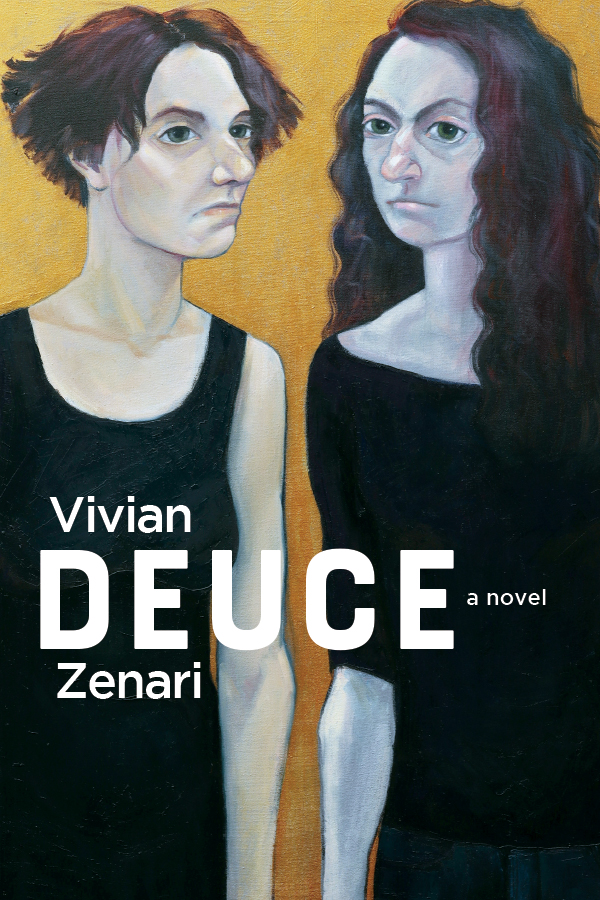

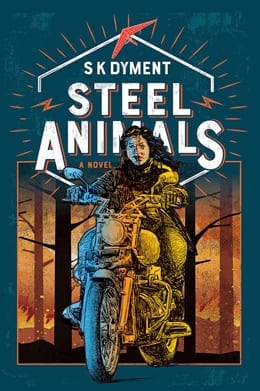
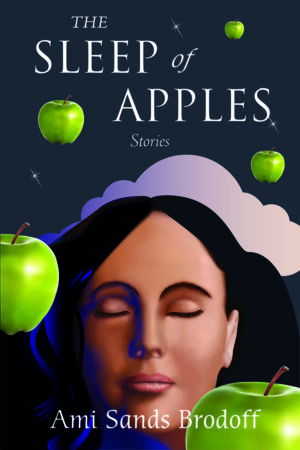
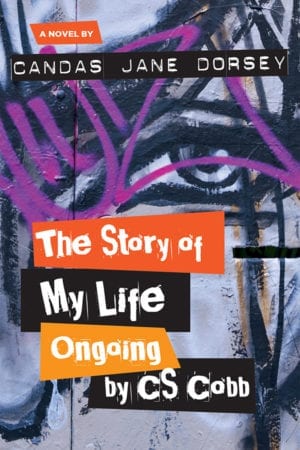
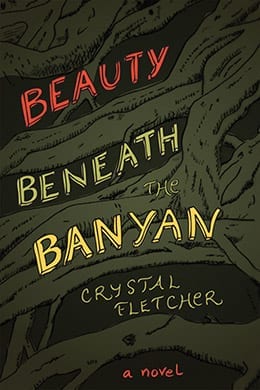

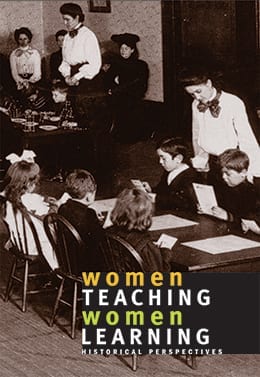
Reviews
There are no reviews yet.